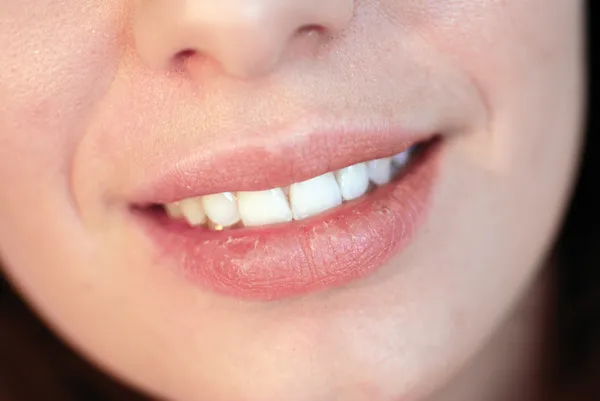What are Wisdom Teeth?
Your wisdom teeth are the teeth found at the back of your gums often referred to as your third molars. Most adults have 32 teeth, including 4 wisdom teeth, one in each corner of your mouth and are the last adult teeth to come through, if they come through at all.
They normally grow through (erupt) during the late teens or early 20s and can often cause issues because there’s simply not enough room in the mouth for them to come in properly. Due to the lack of space the teeth can come through at an angle or only partially through the gum. This is what is known as impacted wisdom teeth and more often than not are the wisdom teeth that need to be removed.
Impacted wisdom teeth can cause pain, damage to other teeth and other dental problems, including overcrowding of the existing teeth and impaction, either into the neighbouring teeth or into the gum. However, not all wisdom teeth will cause immediate problems and even if they are impacted it might be painless.
Signs & Symptoms
When your wisdom teeth come through, it is usually accompanied by some discomfort. There are a number of side effects that would make it necessary to have your wisdom teeth removed. Here are some of the signs and symptoms you may experience that can be problematic until the tooth is extracted:
Persistent Pain & Infection
One of the most noticeable signs that you need your wisdom teeth taken out is the pain and irritation both at the tooth site and when you open your mouth. Your wisdom teeth usually erupt between the ages of 17 and 21, making them the last to emerge in your mouth and therefore the most common teeth to become wedged-in or impacted. As there is not enough room in the jaw or mouth for them to emerge, instead of coming in straight they can come in sideways, tilted or misaligned in the jaw, pressing up against the teeth in front of it.
An impacted tooth can be painless and you may not even realise that it is there, however when it tries to erupt, the overlying gum may swell and cause pain, which may be felt in nearby teeth or the area on that side. This pain may occur for several days and then disappear for weeks or months before returning. But typically, the pain increases the longer you leave them untreated.
A partially erupted tooth can then collect food, plaque and other debris, which can lead to gum swelling, tooth decay and an infection called pericontis. Pericontis is an infection wherein bacteria from food, plaque and other debris becomes trapped in between the space of the impacted tooth and the gum. If untreated, this infection can spread toward the throat or into the neck.
Stiffness in Jaw & Swollen Gums
As your wisdom teeth come in, they can push against your other teeth and make them move. This in turn can cause discomfort in your jaw, so it feels stiff, sore and difficult to open. This can also cause swelling of both the gum in the back of the mouth or on the side of the jaw.
Red and swollen gums are caused by the flap of extra of gum tissue which resides next to the tooth as a result of the wisdom teeth partially erupting. As mentioned above, this infection is known as pericontis and is caused when particles of food and bacteria get trapped in the tissue and become infected and inflamed over time because it is difficult to clean.
Wisdom teeth can also lead to gum disease at the back of the mouth. Some signs of gum disease and/or infection includes:
Tender and bleeding gums
Pain and swelling
Pus coming from the gum
The lymph glands under the jaw becoming swollen and sore
Difficult to open the mouth and swallow
Fever
Cysts & Cavities
If wisdom teeth are ignored, they can cause cysts and other benign (harmless) jaw tumors, which is a sac of fluid that gets accumulated and will infect the area nearby. As a result, it will damage the roots of your nearby teeth. This can lead to bone destruction – however this is rare.
Impacted teeth can also cause problems such as cavities and tooth decay. If they push on the neighbouring molar, this can lead to tooth movement, which leaves gaps and spaces between our teeth that cannot be easily cleaned while brushing. As a result, they have the potential to collect food and bacteria, which eventually can cause cavities in your teeth.
Sinus Issues & Eating Difficulty
You may be able to tell if your wisdom teeth are coming through if you experience sinus pain, congestion and pressure, especially in the upper jaw area. The growth of teeth and development of its roots can push against the sinuses located right above and behind. Due to this pressure, it can cause headaches and sinus pain.
Misalignment due to your wisdom teeth can also make it difficult to open and close your mouth. As a result, you may experience pain while chewing or biting. Another sign your wisdom teeth are coming through is bad breath and an unpleasant taste in your mouth
Its my consultation plat form. If you want consult here minimal amount of audio and video consultations.
I am now available for online consultation. To consult on app, Download Lybrate mobile app and enter SR0971 as doctor code. Download from https://www.lybrate.com/mobile
Or directly consult on web via:
****************************************************************
THANK YOU FOR READING THIS,ARTICLE
I think this is an Useful content for you , and please follow and join us our free dental health consulting channel and your questions in telegram
***********************************************************************************
Follow me ,
Twitter; https://twitter.com/BlogsDental
EMAIL: dentalblogspt@gmail.com






No comments
Thank you for your valuable comments ∧ stay tuned.